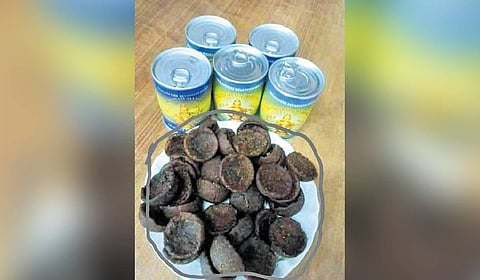

KOCHI: The Food Safety and Standards Authority of India (FSSAI) has informed the Kerala High Court that Sabarimala Sannidhanam, as a food business operator (FBO), must comply with the provisions of the Food Safety and Standards (FSS) Act in the production of appam and aravana. It stated that any non-compliance would lead to action against the FBO in accordance with the act’s provisions. It also clarified that appam falls under the ‘prepared food’ category.
The affidavit was filed in response to petitions filed by Dr Mahendra Kumar P S and others concerning the safety of prasadam distributed to devotees at Sabarimala. The court had previously directed the food safety department to ensure that the moisture content in the appam and aravana prasadam at Sabarimala Ayyappa temple remained within the standard limit of 10%. Analysis of appam samples collected on November 14, 15, and 19, last year, revealed that the moisture content exceeded this standard limit, necessitating immediate corrective action to prevent potential health hazards.
The affidavit added that under various sections of the FSS Act, temples or religious institutions offering food or prasadam are classified as FBOs. It clarified that an ‘FBO’ is a person who carries on or owns a food business and is responsible for ensuring compliance with the act and its regulations.
FSSAI also informed the court that an inspection conducted six months ago at the Pamba premises in Sabarimala, following a controversy over production, highlighted several concerning issues.
These included dust, cobwebs, and food particles in production and storage areas, lack of handwashing stations at key production areas, chipped floor tiles, flaking paint on walls, and windows without pest-proofing.
Additionally, the inspection noted a lack of chimneys and inadequate exhaust fans in cooking areas, and raw materials stored directly on the floor without segregation. Following this report, FSSAI wrote to the Travancore Devaswom Board (TDB) to ensure quality and hygiene.
In response to FSSAI’s letter, TDB assured that raw materials would be examined, and the moisture content of each product would be ensured. They also stated that regular and routine cleaning of the entire plant had been implemented as a corrective measure for hygiene improvement.
Furthermore, TDB indicated that more batches of appam and aravana production would be undertaken during the Mandalam-Makaravilakku season, with continuous monitoring of hygiene, moisture, and other relevant parameters.